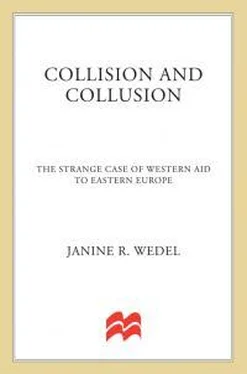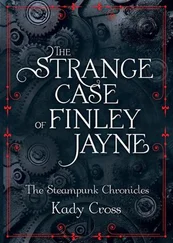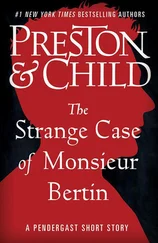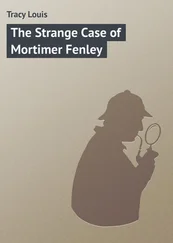3. It is worth noting that Harvard’s eminent Russia scholars, such as those associated with the Davis Center for Russian Studies, were not involved in the Harvard projects and activities here discussed. Indeed, some of these scholars have expressed skepticism about them.
4. U.S. General Accounting Office, Foreign Assistance: Harvard Institute for International Development’s Work in Russia and Ukraine, Washington, D.C.: GAO, November 1996, p. 4.
5. Sources include project documents submitted by Jeffrey D. Sachs and Associates Inc. to the Finnish government (project entitled “Transformation of Centrally Planned Economies: The Lessons for Developing Countries,” final statement of income and expenditures, June 1990-June 1992; and Finnish Ministry of Foreign Affairs documents, including internal audit of the project, March 22, 1993).
6. Maxim Boycko, Andrei Shleifer, and Robert Vishny, Privatizing Russia, Cambridge, MA: MIT Press, 1995, p. viii.
7. Lawrence Summers’s biography, as supplied by the U.S. Treasury Department.
8. Karen Pennar and Peter Galuszka, “Privatization Expert and Cheerleader,” Business Week, July 19, 1993.
9. Vita of Andrei Shleifer on file at HIID, Harvard University.
10. Book jacket, Maxim Boyco, Andrei Shleifer, and Robert Vishny, Privatizing Russia, Cambridge, MA: MIT Press, 1995.
11. Interview with AndreiVernikov, November 22, 1997.
12. Project documents submitted by Jeffrey D. Sachs and Associates Inc. to the Finnish government state that “The [Sachs] team has worked closely with the Gaidar team offering advice on the design and implementation of stabilization policies.” (“World Institute for Development Economic Research Project on the Transformation of Centrally Planned Economies: Report on Activities, First Half of 1991,” p. 6.)
13. For a detailed analysis of how shock therapy was applied in Russia, and the results, see David M. Kotz and Fred Weir, Revolution from Above: The Demise of the Soviet System, London, United Kingdom: Routledge, 1997, chapters 9 and 10. See also Anne Williamson, Contagion: The Betrayal of Liberty—Russia and the United States in the 1990s, forthcoming, chapter 7.
14. “A Survey of Russia’s Emerging Market: A Silent Revolution,” Economist, April 8, 1995.
15. Summers’s dictates included the Russian tax code, oil industry prospects, and how Russia should prepare itself to join the World Trade Organization and deal with U.S. trade laws.
16. Interview with Mark C. Medish, deputy assistant secretary for Eurasia and the Middle East, U.S. Department of Treasury, November 26, 1997.
17. Project documents submitted by Jeffrey D. Sachs and Associates, Inc. to the Finnish government state: “Jonathan Hay, a Harvard law student and Rhodes Scholar, traveled to Moscow to conduct a study of the prospects for mass privatization in Russia. He quickly became a trusted advisor to Deputy Prime Minister Anatoly Chubais, and has provided important economic, legal, and logistical analysis to the staff of the State Committee on Privatization. In March, Mr. Hay also joined the team sponsored by the Ford Foundation and will continue his work in Russia over the coming year.” (“World Institute for Development Economic Research Project on the Transformation of Centrally Planned Economies: Report on Activities, First Half of 1991,” p. 9).
18. Vita of Jonathan Hay on file at HIID, Harvard University.
19. Lawrence Summers’s speech printed in Russia Business Watch, vol. 5, no. 2, Spring 1997, p. 19.
20. Olga Kryshtanovskaya, “The Real Masters of Russia,” Argumenty i Fakty, no. 21, May 1997, reprinted in Johnson’s Russia List, by David Johnson, Washington, D.C: internet newsletter.
21. In coining this use of “transactor,” the author purposefully draws on the original meaning of the term: someone who carries through or does business. The author’s theory of transactorship is presented in “Tainted Transactions: Harvard, the Chubais Clan and Russia’s Ruin,” The National Interest, no. 59, Spring 2000, pp. 23-34, and in “Rigging the U.S.-Russian Relationship: Harvard, Chubais, and the Transidentity Game,” Demokratizatsiya: The Journal of Post-Soviet Democratization, vol. 7, no. 4, Fall 1999, pp. 469-500.
22. For information on this suit, see United States Attorney District of Massachusetts, “United States Sues Harvard and Others For False Claims Relating to USAID Programs in Russia,” Press Release, U.S. Department of Justice, September 26, 2000.
23. According to USAID’s Deirdre Clifford (interview of June 1996), since 1992 HIID received $40,373,994 in noncompetitive grants under the First Cooperative Agreement. Another $17,423,090 was designated for Harvard under the Second Cooperative Agreement (a three-year agreement that began on September 30, 1995), of which $4.5 million was obligated. (USAID documents and interview, June 11, 1996).
Much U.S. economic aid, notably the so-called technical assistance in such areas as privatization and economic restructuring (accounting for about two-thirds of USAID expenditures in Russia as of March 31, 1996 and remaining at that level through September 30, 1999), went to pay Western consultants. (Calculated from figures published by the U.S. Department of State [ U.S. Government Assistance to and Cooperative Activities with the New Independent States of the Former Soviet Union: October 1995-March 1996; and U.S. Government Assistance to and Cooperative Activities with the New Independent States of the Former Soviet Union: FY 1999 Annual Report] prepared by the Office of the Coordinator of U.S. Assistance to the NIS), with input by Deputy Coordinator of NIS Assistance William B. Taylor as to which categories consist largely of technical assistance, interview of August 9, 1996.)
24. U.S. government procurement officers and GAO officials, including Louis H. Zanardi, who spearheaded GAO’s investigation of HIID activities in Russia and Ukraine offered this pronouncement.
25. Biography and information supplied by Pascual’s office. As of this writing, Pascual is the U.S. Ambassador-designate to Ukraine.
26. U.S. General Accounting Office, Foreign Assistance: Harvard Institute for International Developments Work in Russia and Ukraine, Washington, D.C.: GAO, November 1996, p. 18.
27. Interview with Louis H. Zanardi, April 4, 2000.
28. Interview with Jonathan Hay, June 17, 1994.
29. The author placed numerous calls to Jonathan Hay in Moscow to obtain a response to these issues during the weeks of August 5 and August 12, 1996. Hay was reportedly in the office but did not take or return any calls.
30. U.S. General Accounting Office, Foreign Assistance: Harvard Institute for International Developments Work in Russia and Ukraine, Washington, D.C.: GAO, 1996, p. 17.
31. Ibid., p. 3.
32. Ibid., p. 43.
33. Letter from USAID to HIID director Jeffrey Sachs, May 20, 1997. See also USAID press release, “USAID Suspends Two Harvard Agreements in Russia,” Washington, D.C.: USAID Press Office, May 20, 1997.
34. The report recommended that HIID be dissolved and that selected programs be integrated into other university programs. HIID’s website (www.hiid.harvard.edu) states as follows: “In July 2000, many of HIID’s projects will be absorbed and integrated into other faculties within Harvard University.” An inspired Harvard University spokesperson, Joe Wrinn, spun the story thus: “It’s a vote of confidence for the study of international development and its permanent integration into Harvard University.” Beth McMurtrie, “Report Advises Harvard to Dismantle its Institute for International Development,” Chronicle of Higher Education, January 12, 2000, chronicle.com/daily/2000/01/2000011204n.htm.
Читать дальше












